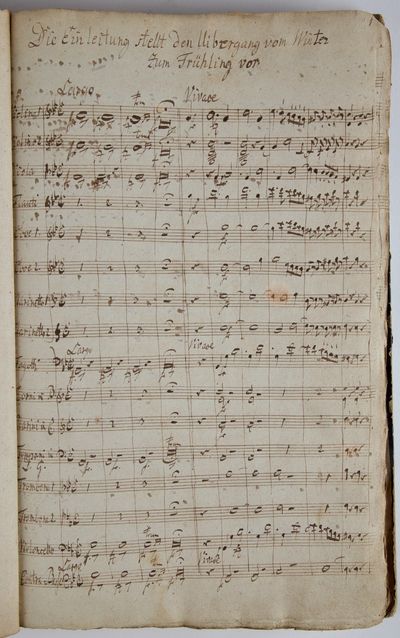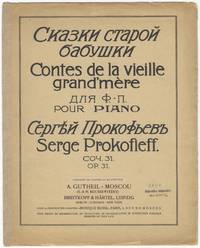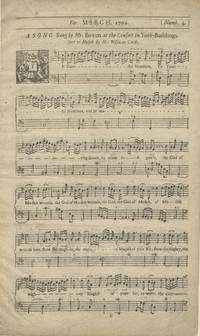1803 · Germany or Austria
by HAYDN, Joseph 1732-1809
Germany or Austria, 1803. Folio (213 x 348 mm). Mid-blue boards with blank octagonal paper label to upper. Notated in brown ink on various 16-stave rastrum-ruled laid papers. 1f. (recto title, verso "Personen"), 329, [i] (blank) pp. With German text. Watermarks include "Wildenfils" (or "Wildenfels"), "GH," and "IV-WR."
With occasional cancellations and corrections. Most blank measures numbered, indicating the manuscript may have been intended for publication, or for the production of parts.
Binding worn, rubbed, and bumped. Slightly worn; light uniform browning; occasional minor stains, primarily to blank margins. In very good (truncated)
With occasional cancellations and corrections. Most blank measures numbered, indicating the manuscript may have been intended for publication, or for the production of parts.
Binding worn, rubbed, and bumped. Slightly worn; light uniform browning; occasional minor stains, primarily to blank margins. In very good (truncated)







